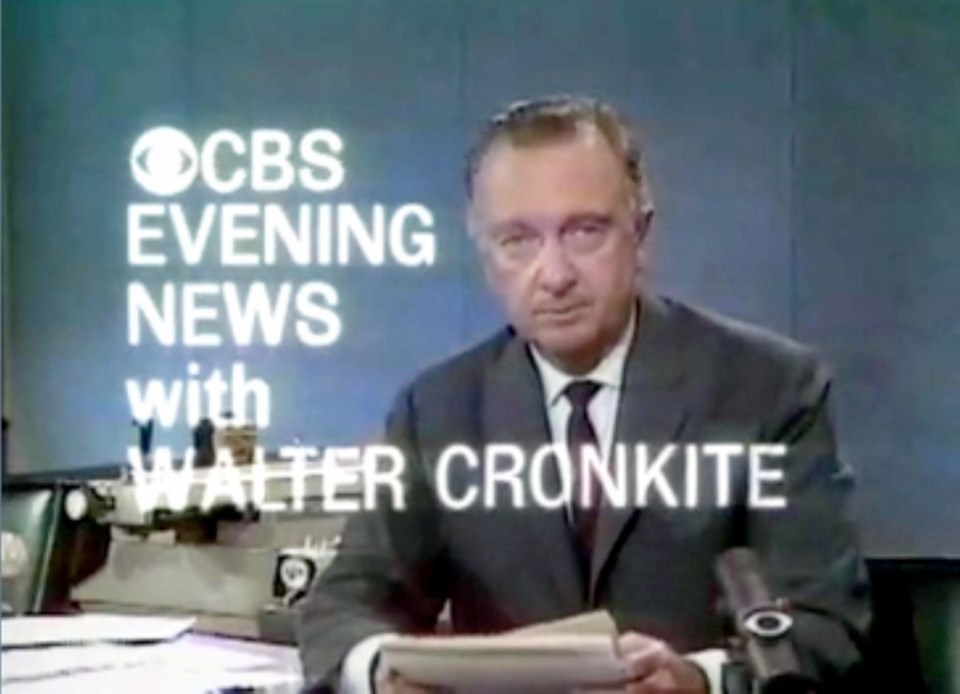Variations on the aphorism “history is written by the winners” have been attributed variously to Napoleon Bonaparte, George Orwell and Winston Churchill.
We accept that history, the kind we find in textbooks is, at best, a fairly shaky account of what actually happened.
Nevertheless, history, no matter who wrote it, is what we teach in our schools, trusting that legitimate historians used primary sources such as documents and first-person accounts to substantiate as balanced an account as possible of events long past.
In that way, history is, in the best sense, the “news” about yesterday.
We might even be able to rely upon those accounts to contribute some meaning and understanding to the mystery of how we got from back then to now.
But that is changing, as today’s news consumers prefer information presented in small, entertaining bites and delivered with an edgy attitude flavoured by a particular partisan viewpoint or ideological bias.
Entire TV news networks, some the technological equivalent of checkout magazines, satisfy that need.
Today’s major news sources have, at least in the eyes of some media critics, become self-serving, inasmuch as journalists need crises to dramatize new and politicians need, in turn, to urgently appear to be responding to crises — every hour of every day.
Too often, the crises are not really crises but joint fabrications delivered breathlessly every hour of every day via news derived initially from Twitter, Instagram or Facebook claims.
There was a time, not so long ago, when what appeared in the media for public consumption was limited mainly to reports overseen by steely eyed editors whose job it was to question every assertion of fact laid apprehensively before them by their writers.
Those of us who have been news junkies most of our adult lives will fondly recall the calmly reassuring certainty of an edited and fact-checked report by the great news people of yesteryear — Walter Cronkite, Ben Bradlee, Malcolm Muggeridge and Peter Newman — professionals who, every day, were unconsciously writing the existential history of their times, based, as much was humanly possible, on verified fact.
That certainty has been replaced in the minds of the next generation by interactive computer-mediated technologies such as Instagram, Facebook, Twitter and Tumblr, which deliver “news” accompanied by software programmed to mimic natural human reactions — liking, commenting, following and “unfollowing” on various social-media platforms.
And it gets worse.
News “tools” are now available to anybody with a keyboard and a determination to get a message — any message — into the public domain.
The unedited disinformation that any individual wants to put out there — immediately and anonymously — then goes “viral,” a phenomenon with which today’s print media cannot compete.
Social media have also become the playground of a whole new class of unfettered “bad actors” — people such as Jack Posobiec, the Roger Stone protégé who spearheaded the near-deadly Pizzagate disinformation campaign, and Jonathan Lee Riches, who bamboozled the venerable New Yorker magazine with a succession of crackpot stories about current events and celebrities.
In her recently released book Merchants of Truth: The Business of News and the Fight for Facts, author Jill Abramson warns that while newspapers have been slow to embrace the immediate powers and dangers of the new technologies, it is the public’s increasingly comfortable reliance on social media and cable news with its dependence on punditry and unsubstantiated opinion rather than on reliable reporting that is the real problem.
Mark O’Connell in his September 2018 New Yorker piece The Deliberate Awfulness of Social Media argues that the Enlightenment-era equation of knowledge and power has collapsed under the technology-driven tonnage of 24/7 material, while social media assume no responsibility for the lack of integrity of their content.
So, suddenly, it is not a matter of reminding today’s kids that the history we teach in schools was written by the “winners” and might not, no matter what sources were used, be entirely objective.
Education has become much more a matter of inoculating students against the daily torrent of unsubstantiated opinion and the miasma of misinformation that, rightly or wrongly, will somehow become tomorrow’s history.
It will be an instructive exercise for the next generation’s serious students, certainly those at the post-graduate level, to find their way through the overwhelming amount of puffery and hoopla left as the detritus of today’s “information age,” as they search for something in all this techno-driven hullabaloo for something worth representing as an authentic history of our time.
Who wrote it will have become irrelevant.
Geoff Johnson is a former superintendent of schools.



